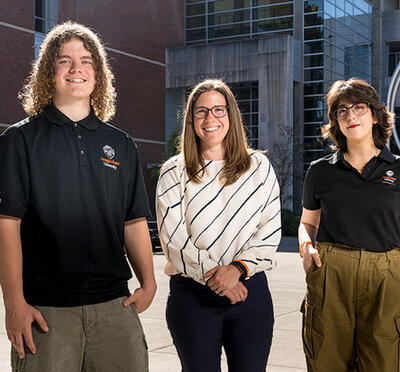Paul Cull, emeritus professor of computer science at Oregon State University, died at home at age 76 of pancreatic cancer on Dec. 17, 2019. Cull was one of the first two members of the computer science faculty at Oregon State, where he dedicated himself to excellence in research and teaching for his entire career.
When Cull and his wife, Elaine, moved to Corvallis in the summer of 1970, the Department of Computer Science did not exist. He, along with Curtis Cook were the founding members of the department in the College of Science. It was Cull’s first academic position after receiving his doctorate in mathematical biology from the University of Chicago earlier that year.
Computer science experienced a transformation during his 49-year career. The department moved into the College of Engineering in 1992. In 2003, it merged with electrical engineering to form the School of Electrical Engineering and Computer Science. There were 73 computer science majors in 1972, according to a history written by Elaine Cull. Today, Oregon State has over 3,000 students in computer science.
Cull continued to be an active member of the School of Electrical Engineering and Computer Science after receiving emeritus status in 2003. He was a familiar sight on campus in his Hawaiian shirt and shorts, even in winter. Former graduate students fondly remember his weekly coffee hours on Friday afternoons.
“The point of the coffee hour was ostensibly to discuss some article that Paul found, over coffee and snacks (always Paul’s treat), but it was really more of a moral support group for the grad students who regularly attended,” said Eric Walkingshaw, now an assistant professor of computer science at Oregon State. “This was a very important source of emotional support and camaraderie for me and many other students.”
Bella Bose, professor of computer science, recalls that Cull was supportive when Bose started as an assistant professor in 1980. Cull had developed the computer science courses and handed over his invaluable notes to Bose.
“He helped me tremendously and was a very nice person,” Bose said of his close friend.
Cull was also outspoken, especially when it came to the education of computer science students.
“When I was the interim head for the school, he would come to my office and yell at me that our class sizes were too big, and insist we create more sections with smaller class sizes,” Bose said with a smile.
Cull’s areas of research were mathematical biology, theory of computation, and analysis of algorithms. He contributed to the early foundations of deep learning, including his doctoral thesis, an analysis of neural networks; “Linear analysis of switching nets,” published in Kybernetick in 1971; and a conference paper he wrote with graduate student Luca Tallini, “Neural nets for decoding error-correcting codes,” published by IEEE in 1995.
He received many best paper awards, even after his retirement. His work was also acknowledged with the College of Engineering Alumni Professor Award (2001), a life membership in the Association for Computing Machinery (2013), the 50 Year Award of the Mathematical Association of America (2013), and the E. R. Caianiello Award for Biocybernetics, European Meeting on Cybernetics and Systems Research (2004 and 2010).
Cull is survived by his wife Elaine, his son John-Paul, and his siblings Rosemary, Mark, Rita, Grace, and Leo. He was preceded in death by his parents Clement and Madeline and his sister Julia.



